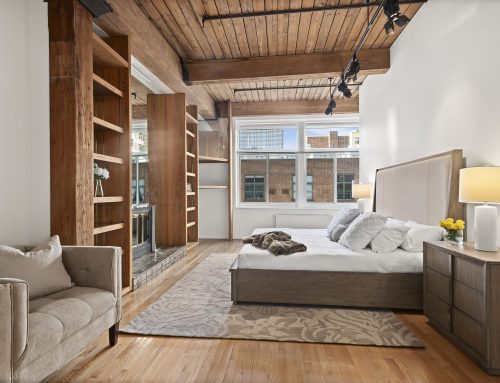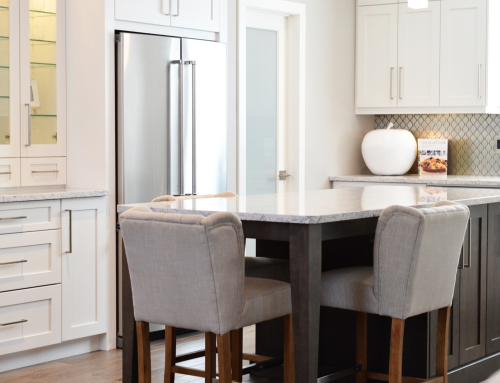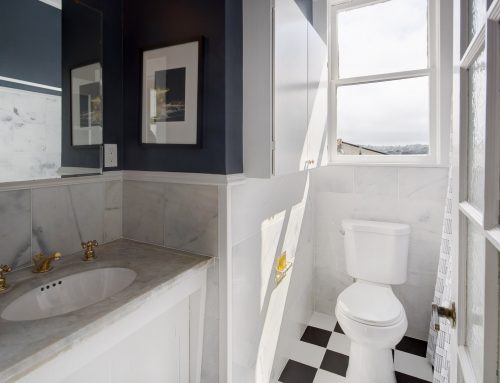Homeownership was once an ordinary and desirable step in the #adulting process. Today, a significant number of would-be buyers in their 20s and 30s are paying off student loan debt, hurting their abilities to save for a down payment. Combined with the fairly fresh memory of the late ’00s financial and housing crisis, leasing seems to be the preferred method of housing among Millennials.
Renting is inevitable, but most financiers and real estate professionals maintain a firm belief that buying a home is the better path for your personal finances. Z Chicago wholeheartedly agrees and would like to echo and expand on the various homeownership benefits outlined in a recent blog post from federal mortgage securities group Freddie Mac:
- Homeownership can help you build equity over time. This is the big one. Owning your own home can be a great way to create equity for the future and provide stability and security for you and your family.
- Your monthly payments will remain stable. Speaking of stability, with fixed-rate mortgages, your monthly principal and interest payments will stay the same for the entire period of the loan. This will make it easier to plan and budget.
- You may have some tax benefits. You may also be able to deduct the interest on your mortgage and property taxes. These tax savings may offset a portion of the cost of owning your home.
- You can take pride in ownership. One of the best things about owning your own home is that you’ll have a place that is uniquely “yours” that you can customize — from paint colors to remodeling projects.
- Homeownership improves your community. And last but certainly not least, you may find yourself becoming more involved in the community. Homeowners are more likely to support local businesses, thereby improving the local economy — and communities with high homeownership rates naturally attract more homeowners.
Let’s first discuss no. 1, the potential to build equity. When you rent, your monthly dues aren’t being funneled into an investment – they pay for you to live in your apartment for the next 30 days only. While renting is a good option for young professionals who haven’t accumulated enough savings to overcome the initial costs of buying, there’s no long-term ROI on renting like there is on homeownership. If you plan to buy with a mortgage, know that not every penny of your monthly payment goes toward your principal, or equity/ownership. Some of your payment goes toward the loan’s interest, particularly in the first few years of homeownership.
Say you buy a $500,000 home and put $100,000 (20%) down upfront. While your monthly total remains the same, you spend less on interest and more on principal the longer you live in your home. Therefore, most homeowners opt to live in their properties for 5 to 7 years – a fair amount of time to build enough equity so that when you sell, you at least break even or, with a smart home purchase and an equity-building approach, make money on the sale. If you want to build equity faster, prepay your mortgage principal or invest in renovations that increase home values.
As mentioned in no. 2, homeowners don’t have to worry about rising rents. According to Apartment List’s June report, rent prices in Chicago are up 4.8 percent from one year ago. Fixed mortgages mean your payment stays the same over the life of your loan unless you decide to refinance. This makes budgeting for other investments and planning for the future significantly easier.
The third primary benefit of homeownership is potential tax savings. The recent statewide income tax hike of 32 percent approved earlier this month is not ideal for most, but the tax benefits of homeownership can help soften the blow. Homeowners who itemize can deduct things like mortgage interest (MID) and energy-efficient home upgrade costs. You can also apply for a property tax credit equal to 5 percent of your real estate tax. Keep in mind, the new income tax legislation wipes away property tax credits and other personal exemptions for high-income groups, defined as individuals making over $250,000 or couples making over $500,000 in adjusted gross income.
The fourth benefit, taking pride in homeownership, depends on whether you view buying a home as an esteemed milestone. Most still do, but some feel their money could best be invested elsewhere and they prefer the freedom of renting. However, based on recent surveys, homeownership aspirations suggestive of the traditional American Dream are alive and well. A recent Gallup poll revealed most non-homeowners (72 percent of respondents) plan to buy homes in the near future.
Finally, there is a definite feeling of permanence once you a buy home. Ask yourself this: are you going to settle down in a community and get to know your neighbors if renting for just a year? Or, will you dedicate more time to branching out if you are both financially and emotionally invested in your community and its constituents?





